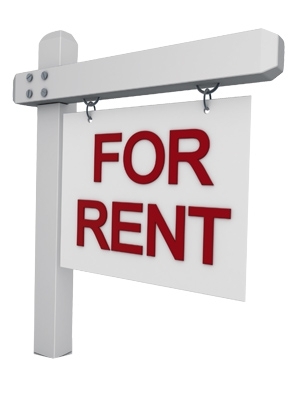
It is the biggest year-on-year increase in two-and-a-half years, the latest Trade Me Rental Price Index shows.
Hawke’s Bay had the biggest increase of 13.8%, with rents in the region reaching an all-time high of $535.
Close behind were Taranaki with a 12.5% rise to hit $450 a week and Manawatū/Whanganui 10% to reach $440 a week.
However, in inner-city Auckland, the median weekly rent dropped by 3% to $560 a week when compared with the same month last year.
There hasn’t been a median weekly rent increase year-on-year since May last year because of an increase in apartments.
Trade Me property sales director Gavin Lloyd says the national median weekly rent in March matched the all-time high first recorded in January. He says there will be no let-up either – demand is high and supply isn’t keeping up.
“Chances are the record high national rent price will be broken in the near future.”
Lloyd says the median rent rose in every region across the country when compared with March last year.
Demand up
Nationally demand for rentals was up by 28% last month when compared with March last year, while supply was up by 17%.
“After two consecutive months of supply outweighing demand, the tables turned in March, with demand once again overtaking supply and putting pressure on the market, causing rents to climb,” says Lloyd
Demand increased across the board with the exception of Gisborne.
Across Manawatū/Whanganui and Nelson/Tasman demand increased by 50% when compared with the same month last year, while Bay of Plenty at 49% and Northland 47% were not far behind.
Stagnant
Compared with national price growth, Auckland region had a slower year-on-year increase in March.
In the Auckland region, the median weekly rent increased by 2% year-on-year, to $590, last month.
The number of available rentals in the Auckland region was up by 32% year-on-year in March while demand was up by 26%. The most expensive districts in the region were North Shore City at $635, Rodney $625, and Manukau $600), the index shows.
Lloyd says last month the most popular rental listing in Auckland was a two-bedroom house on McDougall Street in Manurewa east for $395 a week. It received 64 enquiries in its first two days onsite.
Wellington rents up
The median weekly rent in Wellington region spiked by 5% year-on-year to $590 last month, while in the city it increased by 2% to $600.
Porirua rents overtook Wellington city once again in March, making it the most expensive district in the country.
“As we first saw in July last year, and then again a number of times since, the median weekly rent in Porirua is more expensive than rents in the city.”
Demand for rentals in the Wellington region was up by 20% last month when compared with March 2020, while supply was up by 12% year-on-year.
“The most popular rental last month was a two-bedroom townhouse on Kingsley Street, Stokes Valley, Lower Hutt for $495 per week. The property received 89 enquiries in its first two days onsite.”
Urban property rents increase
National median rents for townhouses were up 2% year-on-year in March. Apartments, on the other hand, dropped by 3% when compared with last year.
Record rents for small houses
Nationally one and two bedroom houses rose to a record median rent of $465 in March.
Rents for both three to four and five-plus bedroom rose by 5.3% in March when compared with the same time last year.
Lloyd says the rental market could be impacted by the Government’s housing policy changes.
“Some economists are predicting rents will rise as a result of the changes, but it’s still too early to see if this is the case and the market could even see rents cool off in the coming months during the quieter winter period.”
| « Interest rate rises scary for property investors | Investors – up and down » |
Special Offers
Sign In to add your comment

© Copyright 1997-2026 Tarawera Publishing Ltd. All Rights Reserved
The Council has 1927 properties and, as a matter of policy, sets the rent on those properties at 70% of market rent levels. As a result of that policy it is apparently facing a budget deficit of $402 million and is asking for a Government bail-out.
Residential landlords are frequently accused of extracting exorbitant rents and there are frequent demands that controls be imposed to restrain those rent levels.
If a rent of 70% of current market leads to substantial and ongoing losses to the landlord, it would appear that market rent levels do actually accurately reflect the substantial and ever-increasing costs of providing rental accommodation.